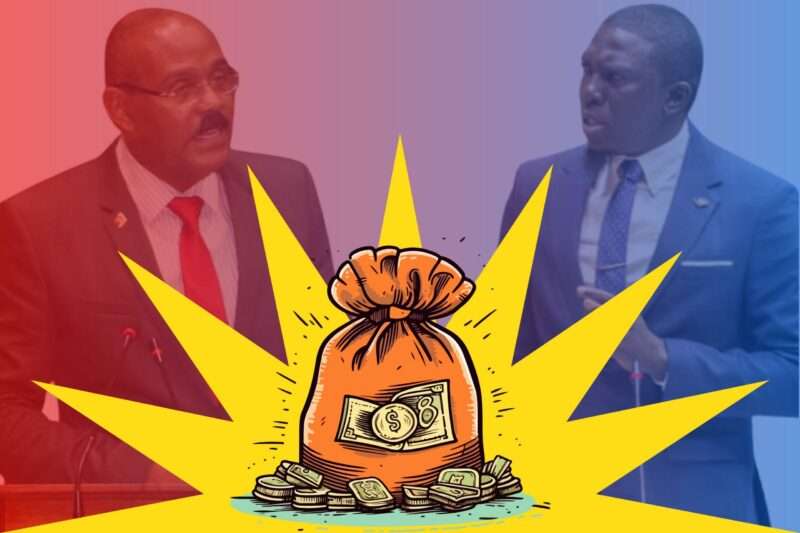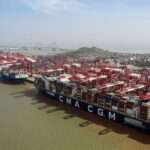
‘Tariffs Tariffs Tariffs’: It Should Get Us Thinking
By Kieron Murdoch | Opinion Contributor
Much has been said about the potential impact of the incoming United States (US) administration of President-elect Donald Trump and its stated aim of applying tariffs to many imports landing in the US – particularly those from China. Many analysts suggest the impact will be highly inflationary for that country and may have spin on effects for others. But the talk about tariffs should perhaps get us thinking about how we use tariffs ourselves.
What is a tariff? A quick visit to investopedia turns up this definition: “A tariff is a tax imposed by one country on the goods and services imported from another country to influence it, raise revenues, or protect competitive advantages.” It notes that governments apply tariffs “to raise revenue, protect domestic industries, or exert political leverage over another country” and that they often have “unwanted side effects, such as higher consumer prices”.
Whether or not the impact of a tariff is more good or bad overall would depend on the specific circumstances, but it is a generally held belief that the less barriers there are to reasonably free trade, the better. There are many countries that use tariffs mainly to artificially increase the price of similar but cheaper goods from another source, thereby making domestically produced goods more competitive when they are being undercut by external competitors.
In small developing countries like Antigua and Barbuda however, tariffs perhaps serve two main purposes. Chiefly, they are imposed as a sure and easy way to raise government revenue through taxing the goods arriving here. Given that we are a developing country with no significant production and manufacturing we import nearly everything. Collecting taxes on those imports is a major source of state revenue, and is easy to collect.
All you need to do is pay a little attention to the news, and you will often see how large a component of overall revenue customs has been. The Comptroller of Customs, Raju Boddu, recently tol ABS that the Customs department has seen “year-over-year growth of over 20 percent every month this year,” and that in the first 10 months of 2024, $397.15 million was collected. That’s $70.59 million more than was collected in the same period last year.
For context, the 2024 national budget was XCD $1.89 billion. The figure above of $397.15 million quoted by Mr. Boddu would be roughly 21 percent of this year’s 1.89 billion national budget. That’s a very significant component of government revenue.
The other main purpose of tariffs in a case like ours is perhaps to have an impact on its balance of payments (BOP). This is a method countries use to monitor all international monetary transactions in a specific period. All trades conducted by both the private and public sectors are accounted for in the BOP to determine how much money is going in and out of a country.
In theory, countries generally try to avoid a persistent significant balance of payments deficit as this can have negative impacts although it can be tempered if there is consistent foreign direct investment (FDI) in the economy. It can be difficult to maintain the value of your currency if you cannot maintain sufficient reserves of other currencies (foreign exchange).
It may be difficult to maintain reserves if your population’s appetite for consumption of foreign goods is causing what foreign exchange there is in your financial system to get used up satisfying transactions, but your system is not replenishing that foreign exchange quickly enough because you are not doing enough trade to bring that exchange back in.
Therefore, sometimes, governments apply tariffs to discourage consumer spending on products from overseas. Theoretically, tariffs should help reduce a deficit in a country’s balance of payments by causing consumers to buy fewer imports (because tariffs have made them more expensive). There are many factors to be considered and this is only a very basic overview of how these policies are meant to work. Real world application is not as clear cut.
It’s worth noting that as a member of the Eastern Caribbean Currency Union (ECCU) we operate in the same monetary space as other countries in the Eastern Caribbean that share the Eastern Caribbean Dollar (XCD). We are also members of the Caribbean Community (CARICOM), which will have its own policies on trade (including tariffs) designed to favour trade within the bloc.
All of that said, we think there should be a deeper discussion about how tariffs, duties and taxes at the port placed on the variety of goods we consume (and for which there is no locally produced alternative in many cases) have affected the cost of living over decades, and how that has in turn affected the purchasing power of money in our economy, and the rate at which the population can experience upward mobility.
The literature suggests that developing countries are often where the highest routine tariffs persist, and that this is often because governments are protecting local industries or simply have fewer sources of revenue. In March 2024, Antigua and Barbuda was included on a list of the top 20 countries with the highest tariffs published by Yahoo Finance based on analysis of World Bank (WB) data.
Interestingly, countries in Africa and the Caribbean dominate the list. Antigua and Barbuda came in at number 17. Other Caribbean countries on the list were Belize at number 2, the Bahamas at number 5, and the Cayman Islands at number 6. African countries on the top 20 list included Guinea, Nigeria, Sierra Leone, Gabon, Cameroon, Equatorial Guinea, the Central African Republic (CAR), Chad, Djibouti, and Gambia. From the Pacific, Fiji, the Solomon Islands, Vanuatu, and Nauru made the list, as well as Venezuela, the only country from South America.
In fact, Within the Caribbean, and based on WB figures from around 2021, our weighted mean applied tariff rate is ahead of Barbados, Grenada, Saint Lucia, Saint Vincent and the Grenadines, Trinidad and Tobago, Saint Kitts and Nevis, Jamaica, Suriname, Dominica, Haiti, Guyana, the Dominican Republic. Only the Bahamas, the Cayman Islands, and Belize are ahead of us.
We do not produce domestic alternatives to the products we import, yet we apply significant tariffs to many of these items. We then apply sales tax on it as well. This happens in a country that still grapples with significant poverty and where many find it difficult to make ends meet. Meanwhile, we have long abandoned the idea of progressive taxation and income tax.
For example, if we have understood the tax policies correctly, then we can assume that the CEO of a company with a salary of XCD $12,000 monthly, or $15,000 monthly, or $17,000 monthly, would pay 0% income tax on that salary as there is no income tax. But if you are a sole trader making over XCD $3,500 a month (over 42,000 annually), you will pay 8% in taxes through Unincorporated Business Tax (UBT). Meanwhile, the government is at times giving large institutional investors tax waivers and concessions on things ranging from imports to corporation tax, and everything in between.
Coming back to the issue of tariffs – we are not suggesting that lower tariffs are a magic bullet that will answer our economic problems. As mentioned, tariffs at times serve a purpose. But their application must be judicious and their impact must actually be analysed. This is where we are perhaps falling down.
What serious public discussion or policy discussion in political circles is there really about macroeconomic policies? Do we seriously underand and debate the impact of policies such as what tariffs we apply at what rate; what taxes are levied on who and at what rate; what concessions are granted, to whom, and at what rate; and how we take on public debt? Largely, we assume that the government has the requisite technical expertise to treat such matters sufficiently, and we carry on with our daily business.
Discussions about the impact of economic policies on the economy and analyses of policies over time don’t seem to feature much in Parliament, or even in the rabid political discourse that rages over the airwaves owned by politicians. Some may be inclined to wonder whether there are fundamental adjustments that ought to be made in the way we seek growth and prosperity which we are simply not focused enough on.
About the writer:
Kieron Murdoch worked as a journalist and later as a radio presenter in Antigua and Barbuda for eight years, covering politics and governance especially. He is an opinion contributor at antigua.news. If you have an opinion on the issues raised in this editorial and you would like to submit a response by email to be considered for publication, please email [email protected].






0 Comments